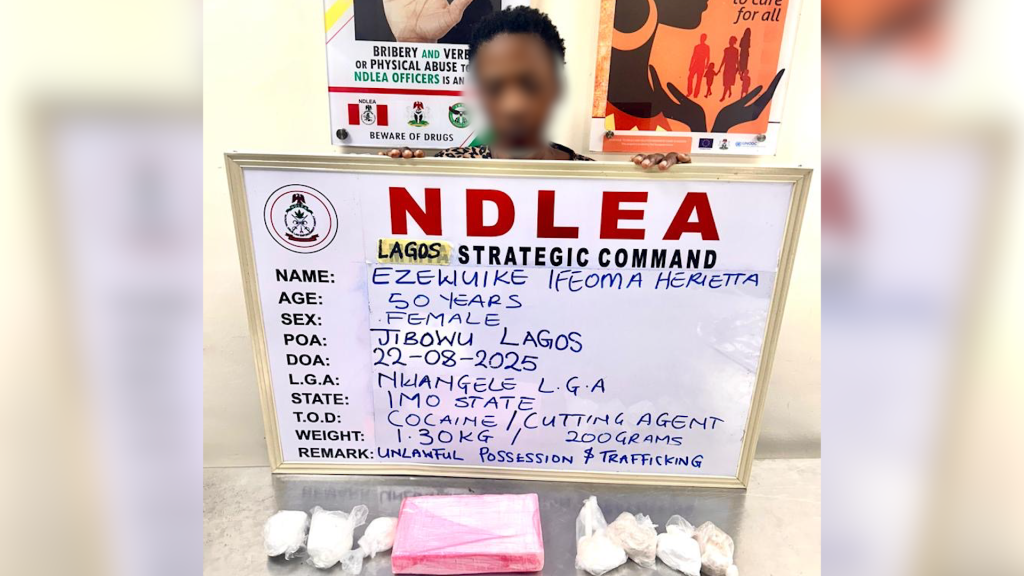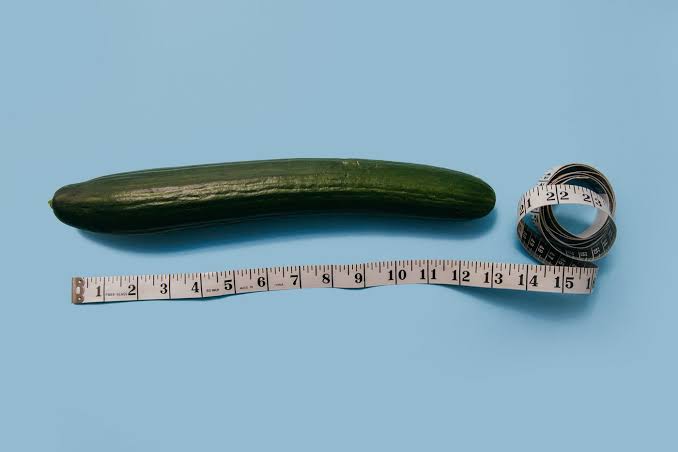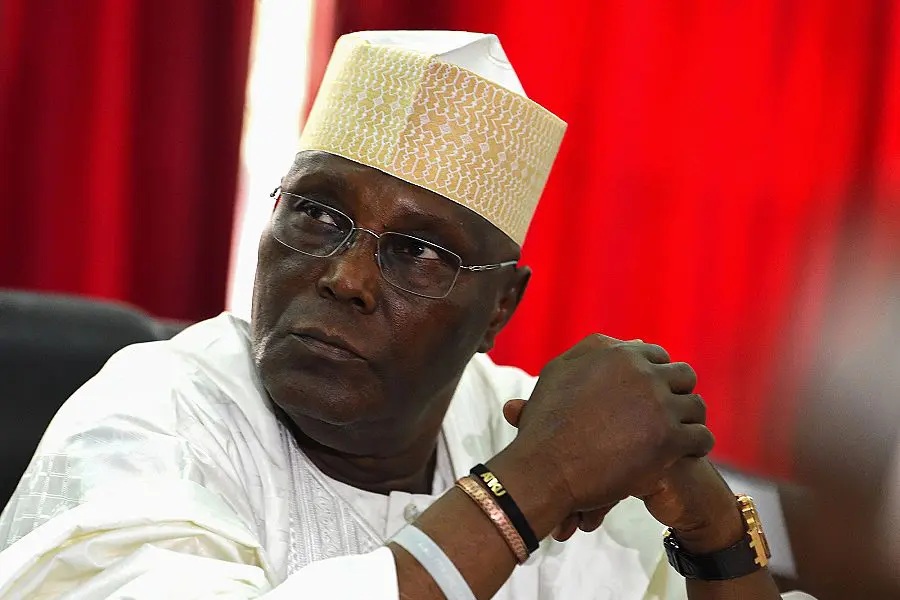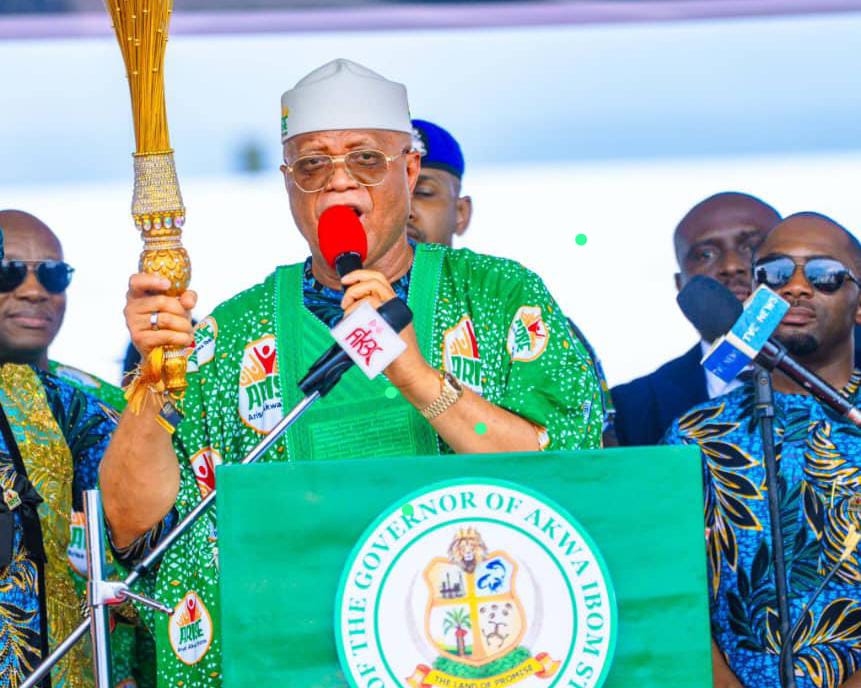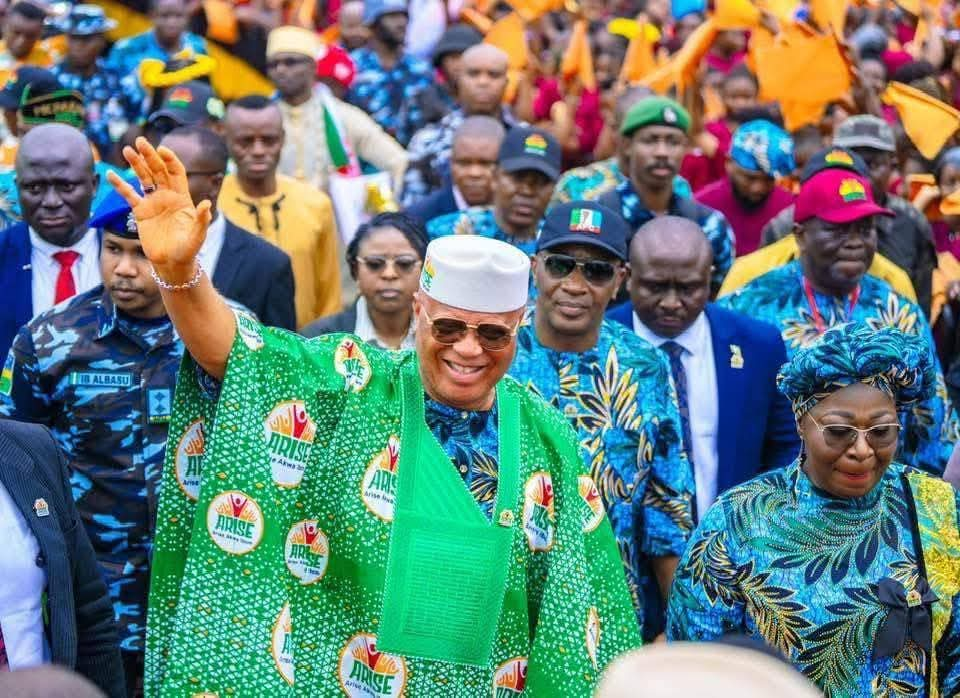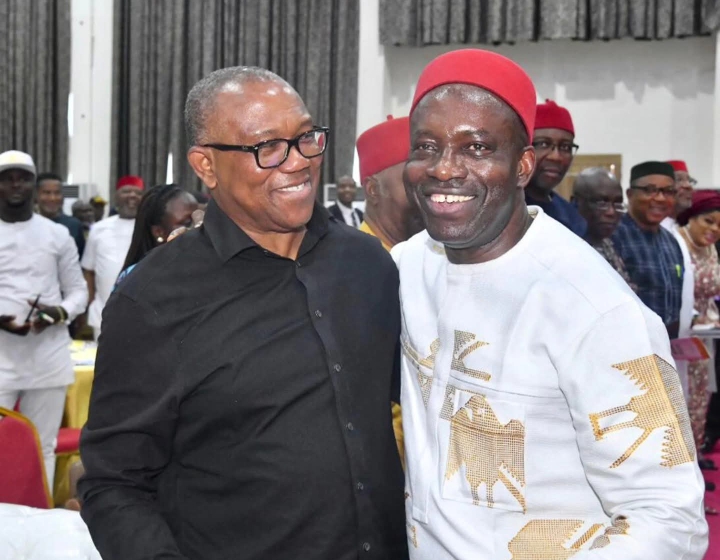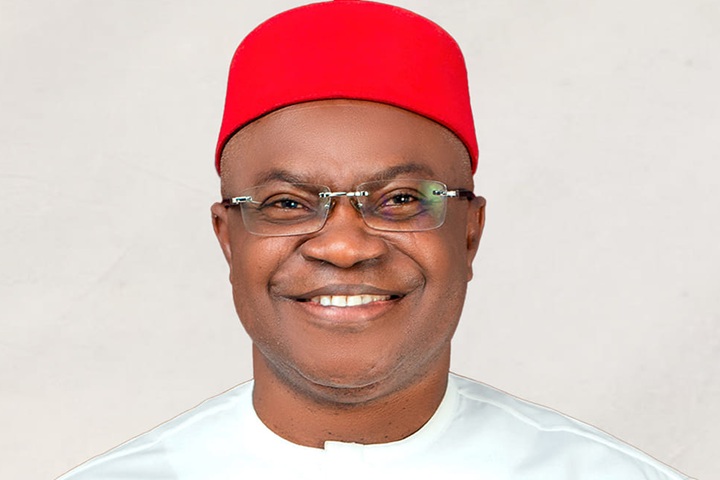Economy
NNPC records petroleum product sale of ₦234.63b in March

The Nigerian National Petroleum Corporation (NNPC) has announced that its downstream subsidiary, the Petroleum Products Marketing Company (PPMC), recorded ₦234.63 billion revenue from the sale of white products in the month of March 2021 representing a 24.7% increase from the ₦188.15billion sales recorded in the previous month of February 2021.
This is contained in the March 2021 edition of the NNPC Monthly Financial and Operations Report (MFOR), according to a press release by the Group General Manager, Group Public Affairs Division of the Corporation, Dr. Kennie Obateru.
The report indicated that total revenues generated from the sales of white products for the period of March 2020 to March 2021 stood at ₦2.129trillion, where petrol contributed about 99.24% of the total sales with a value of ₦2.113trllion.
In terms of volume, the above value translates to 1.782 billion litres of white products sold and distributed by PPMC in the month of March 2021 compared to 1.4billion litres in the month of February 2021.
This volume is made up of 1.75 billion litres of Premium Motor Spirit (PMS) and 0.45million litres of Automotive Gas Oil (AGO).
Total sale of white products for the period of March 2020 to March 2021 stood at 17.374billion litres and PMS accounted for 17.265billion litres or 99.37%.
The NNPC continues to diligently monitor the daily stock of PMS to achieve uninterrupted supply, effective distribution and zero fuel queue across Nigeria.
In the Gas Sector, a total of 222.74billion cubic feet (bcf) of natural gas was produced in the month March 2021 translating to an average daily production of 7,183.33million standard cubic feet per day (mmscfd).
For the period of March 2020 to March 2021, a total of 2,911.62bcf of gas was produced representing an average daily production of 7,409.60mmscfd during the period.
Production from Joint Ventures (JVs), Production Sharing Contracts (PSCs) and NPDC contributed about 63.23%, 19.78% and 63.99% respectively to the total national gas production.
In terms of natural gas off-take, commercialization and utilization, out of the 210.55bcf supplied in March 2021, a total of 138.38bcf was commercialized, consisting of 45.42bcf and 92.96bcf for the domestic and export market respectively.
This translates to a total supply of 1,465.42mmscfd of gas to the domestic market and 2,998.26mmscfd of gas supplied to the export market for the month.
This implies that 63.18% of the average daily gas produced was commercialized while the balance of 36.82% was re-injected, used as upstream fuel gas or flared.
Gas flare rate was 9.50% for the month under review (i.e. 671.13mmscfd) compared to average gas flare rate of 7.25% (i.e. 532.37mmscfd) for the period of March 2020 to March 2021.
On domestic gas supply to the power sector, a total of 844mmscfd was delivered to gas-fired power plants in the month of March 2021 to generate about 3,530mega watts (mw) compared with February 2021 where 825mmscfd was supplied to generate 3,580mw.
The report also informed that the Corporation recorded 70 vandalized points across its pipeline network in the period under review, representing 29.63% increase from the 54 points recorded in the previous month.
While the Port Harcourt area accounted for 63% of the vandalized points, the Mosimi area accounted for 21% and the Gombe area accounted for the remaining 16%.
NNPC is, however, working in collaboration with the local communities and other stakeholders to effectively monitor the pipelines with a view to reducing and eventually eliminating the menace of pipeline vandalism.
The March 2021 MFOR is the 68th edition of the report, it is published monthly to keep the Nigerian public up to date with the operations of the Corporation in line with the management’s guiding philosophy of Transparency, Accountability and Performance Excellence (TAPE).
Economy
Fidelity Bank Resumes International Transactions on Naira Debit Cards
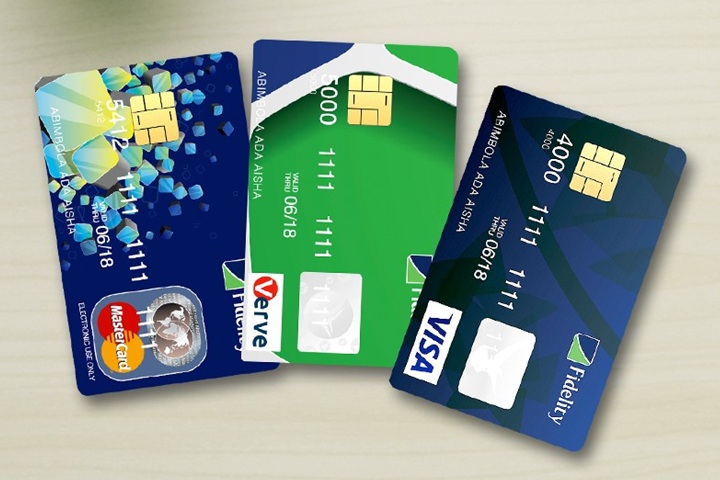
Tier-one Lender, Fidelity Bank Plc., has announced the resumption of international transactions on its Naira Debit Cards.
This recommencement gives customers the freedom to make seamless payments abroad, online, and at ATMs outside the country.
The Divisional Head of eBanking, Fidelity Bank, Ifeoma Onibuje, shed light on the development.
Onibuje said: “We are delighted to inform the public that Fidelity Naira Cards are now enabled for global use.
“This means that our travelling customers can now utilize their Naira Debit cards outside the country to shop, spend and withdraw internationally without hassles.”
“Consequently, our customers can now spend up to $1,000 quarterly for international POS and online transactions; and withdraw up to $500 quarterly on international ATMs.”
The announcement offers Fidelity Bank customers another way to complete international transactions, in addition to the Bank’s existing foreign currency debit and credit cards.
The bank stated that it further reinforces its commitment to delivering solutions that fit seamlessly into customers’ lifestyles.
With Fidelity Bank’s VISA and Mastercard Naira Debit Cards, Nigerians can now enjoy effortless global access.
Beyond payments, Fidelity VISA cardholders, one of the variants of the bank’s card offerings, also enjoy premium travel and lifestyle benefits.
The benefits range from airport lounge and spa access via the Visa Airport Companion App, to fast-track immigration lanes and 20% discounts on SIXT car rentals worldwide.
This move, the bank said, also reflects its commitment to provide secure, convenient, and reliable banking services that empower customers in Nigeria and beyond.
The bank noted that it has deliberately made the process of getting a Fidelity Naira card seamless.
It stressed that customers can easily apply for their Fidelity VISA or Mastercard Naira Debit card via the Fidelity Mobile App or simply visit the nearest Fidelity bank branch to request for one and they can start transacting globally with ease.
Ranked among the best banks in Nigeria, Fidelity Bank Plc is a full-fledged Commercial Deposit Money Bank serving over 9.1 million customers through digital banking channels, its 255 business offices in Nigeria and United Kingdom subsidiary, FidBank UK Limited.
The Bank is the recipient of multiple local and international Awards, including the 2024 Excellence in Digital Transformation & MSME Banking Award by BusinessDay Banks and Financial Institutions (BAFI) Awards; the 2024 Most Innovative Mobile Banking Application award for its Fidelity Mobile App by Global Business Outlook, and the 2024 Most Innovative Investment Banking Service Provider award by Global Brands Magazine.
Additionally, the Bank was recognized as the Best Bank for SMEs in Nigeria by the Euromoney Awards for Excellence and as the Export Financing Bank of the Year by the BusinessDay Banks and Financial Institutions (BAFI) Awards.
Celebrity/Entertainment
How Nigerian TikToker Geh Geh Made ₦45 Million in One Night

A Nigerian TikTok sensation known as “Geh Geh” has stunned the internet after pulling in over $30,000 from a single live session that attracted more than 177,000 viewers.
The young entertainer, who calls his platform the “University of Wisdom and Understanding,” has quickly built a cult following with his raw and unfiltered lectures about women, money, and survival in Nigeria.
During the live broadcast on Thursday, August 21, viewers showered him with virtual gifts that he later calculated to be worth over $30,000.
The milestone instantly pushed him into the spotlight as one of Nigeria’s fastest-rising online personalities.
Reacting in disbelief after the stream, Geh Geh said:
“More than 177,000 people watch my lectures today. Jesus! University of wisdom and understanding, the only university where once you graduate, woman go fear to ask you for money.”
Despite not having a formal education, Geh Geh proudly calls himself “the first illiterate to find a university in the history of Nigeria.” In a video after the viral live, he reminded fans of his humble background:
“I no be graduate too, but by the grace of God, I don find school. I be orphan, but now Nigerians don show me love.”
The TikTok star admitted he was overwhelmed by the generosity of his supporters.
“See gift I made over… more gift when they give me today is worth about $30,000. I no go take this love for granted, because I no really do anything for am.”
His rise has been hailed as proof of how social media is transforming lives in Nigeria. With no degree, no rich background, and no industry connection, Geh Geh has managed to build a fanbase that now calls themselves “students” of his unusual university.
Still, his controversial views on women and relationships continue to spark heated debates. While some dismiss his advice as reckless, others insist his boldness speaks directly to Nigeria’s frustrated youth.
Reflecting on his sudden fame, Geh Geh compared himself to great thinkers:
“If Nigeria be country wey value great people, by now them suppose dey compare people like me with Aristotle, Wole Soyinka, Einstein… but I thank God say people dey see my head and my own difference.”
From an orphan with no prospects to a viral star earning in dollars, Geh Geh’s story has become one of digital empowerment.
His journey shows how platforms like TikTok are creating new forms of fame, money, and influence for Nigerians especially those once written off by society.
Africa
UK Dominates Nigeria’s Q1 2025 Capital Inflows With N5.5tn — NBS

The United Kingdom has once again cemented its position as Nigeria’s leading source of foreign capital, accounting for more than N5.5 trillion in inflows during the first quarter of 2025, according to the latest data from the National Bureau of Statistics (NBS).
Figures from the Capital Importation Report show that capital from the UK rose to $3.68bn (N5.52tn) in Q1 2025, representing 65.26% of Nigeria’s total $5.64bn inflows for the quarter.
This marked a 29.2% rise from the $2.85bn recorded in Q4 2024 and more than double the $1.81bn inflows seen in Q1 2024.
This underscores Britain’s dominance in Nigeria’s external financing profile and highlights the strong bilateral financial ties between both nations.
Breakdown of Q1 2025 Capital Inflows by Country
United Kingdom: $3.68bn (65.26%)
South Africa: $501.29m (8.88%)
Mauritius: $394.51m (6.99%)
United States: $368.92m (6.54%)
United Arab Emirates: $301.72m (5.35%)
Together, these top five countries accounted for over 92% of Nigeria’s capital inflows, reflecting both the concentration of Nigeria’s foreign investments and the risks of over-dependence on limited markets.
Other contributors included:
Cayman Islands: $114.76m (up sharply from $0.64m in Q4 2024)
Belgium: $70.54m
France: $47.33m
Netherlands: $42.68m (down significantly from $425.61m in Q4 2024)
Singapore: $36.79m
Overall, capital importation into Nigeria stood at $5.64bn in Q1 2025, up 10.9% from Q4 2024’s $5.09bn, and a remarkable 67.1% higher than the $3.38bn recorded in Q1 2024.
The NBS noted:
“Capital Importation during the reference period originated largely from the United Kingdom with $3,681.96m, showing 65.26 per cent of the total capital imported.”
A separate survey by Strategy Management Partners (UK) reveals that British companies are increasingly targeting Africa as a strategic growth frontier.
50% of UK firms with annual turnover above £20m are already operational in Africa and planning expansions.
Another 28% of executives said they are interested but remain cautious about entry strategies.
Africa’s appeal lies in its resource wealth and demographic potential:
30% of the world’s mineral reserves
8% of natural gas reserves
12% of oil reserves
65% of the world’s arable land
Projected to host 25% of the global workforce by 2035
Seven key sectors remain magnets for foreign capital inflows into Nigeria and Africa at large:
1. Technology
2. Oil & Gas
3. Power and Renewable Energy
4. Agriculture
5. Manufacturing
6. Infrastructure
7. Strategic Minerals
Analysts warn that while Nigeria’s reliance on UK-driven inflows reflects strong global confidence, the concentration of sources exposes the economy to external shocks if investor sentiment shifts in these countries.
Diversification of investment partnerships particularly within Asi
a, the Americas, and intra-African trade will be crucial to ensuring long-term resilience in capital inflows.
Africa
U.S. Govt Reacts to Nigerian Minimum Wage

The United States government has said that Nigeria’s new N70,000 minimum wage has lost real value due to the sharp fall of the naira, leaving millions of workers trapped in poverty.
According to the 2024 Country Reports on Human Rights Practices, released by the U.S. Department of State’s Bureau of Democracy, Human Rights, and Labour, the wage translates to just $47.90 per month.
The report noted that currency devaluation and weak enforcement have undermined the wage increase.
The report also revealed that many states are yet to implement the new wage law. Several governors cited financial challenges as the main excuse.
Even where the law exists, compliance remains poor because of limited labor inspectors and weak oversight from authorities.
Wage Devaluation and Exclusion
The report highlighted that firms with fewer than 25 workers are excluded from the minimum wage law, leaving millions of employees without protection.
This also explained that about 70 to 80 percent of Nigeria’s workforce operates in the informal sector, where wage and labor rights are almost never enforced.
This means a majority of Nigerians continue to earn far below the national benchmark, despite the government’s approval of N70,000 as the new minimum wage.
The U.S. report stressed that the naira’s sharp decline, trading above N1,500 to the dollar, had worsened the wage erosion. This has left workers unable to afford basic needs, pushing many deeper into poverty.
Human Rights and Labor Challenges
The document pointed out that weak enforcement of labor laws contributes to worsening poverty levels in the country.
Workers in the informal sector, such as street vendors, artisans, and small traders, rarely benefit from labor protections.
The report also noted that Nigeria’s minimum wage is rarely sufficient to cover basic food, housing, and transport needs.
This has further exposed structural gaps in the government’s approach to economic reforms and poverty reduction.
Governors Push Investment Platform
Meanwhile, the Nigeria Governors’ Forum (NGF) has launched a new investment initiative called NGF Investopedia.
The platform seeks to attract capital flows into bankable projects across all 36 states, with the goal of tackling Nigeria’s annual $100 billion infrastructure financing deficit.
The launch event in Abuja gathered governors, international partners, and investors. The forum described the platform as a long-term strategy to unlock growth opportunities across states and strengthen Nigeria’s subnational economies.
NGF Chairman and Kwara State Governor, Abdulrahman AbdulRazaq, said Nigeria must urgently leverage its human and natural resources to address poverty and joblessness.
“Here is Africa’s largest economy, endowed with abundant human and natural resources,” he said, stressing that state governments must play a bigger role in attracting investments and supporting local industries.
A Widening Gap
The contrast between the U.S. report on wage decline and the governors’ push for investment highlights Nigeria’s economic paradox.
While authorities promote foreign capital inflow, millions of workers continue to survive on wages that have lost most of their value.
With inflation rising, food prices soaring, and the naira weakening, the gap between earnings and cost of living keeps widening.
Unless enforcement improves and the informal sector is integrated into wage protections, the N70,000 benchmark may remain symbolic rather than effective.
Economy
Global Card: Fidelity Bank Hits Milestone As Fidelity Naira Card Accepted Globally

Fidelity Bank may have hit another milestone the Fidelity Naira Card is now accepted globally.
This was disclosed in a message sent to Diaspora Digital Media (DDM) via email on Monday.
According to the statement entitled “Your Fidelity Naira Card Now Works Globally; Shop, Pay and Withdraw with Ease!“, customers can buy favourite global brands online using their Fidelity Naira Card.
The band also stated that they can equally pay at POS terminals abroad and make cash withdrawals at ATMs as they travel.
The message reads:
“We’re excited to let you know that your Fidelity Naira Card is now enabled for global use — so you can shop, spend and withdraw internationally with confidence.
“Here’s what you now enjoy every quarter:
|
Channel |
Transaction Limit |
| ATM Withdrawal abroad | $500 |
| Online/Web & POS Payments | $ 1,000 |
“What does this mean for you?
- Shop your favourite global brands online
- Pay at POS terminals abroad with ease
- Withdraw cash at ATMs when you travel.”
The statement, however, noted that the $1,000 quarterly limit applies to all international transactions combined, including ATM withdrawals, online purchases, and POS payments.
The bank urged customers who may need assistance with setting card limits or activating their cards for global use, to contact the bank’s customers care “Centre Trueserve”, which is available round the clock, whether in Nigeria, or outside the country.
“Your world, your card — spend smart, spend globally with Fidelity,” the message concludes.
-

 Celebrity/Entertainment2 days ago
Celebrity/Entertainment2 days agoHow Nigerian TikToker Geh Geh Made ₦45 Million in One Night
-
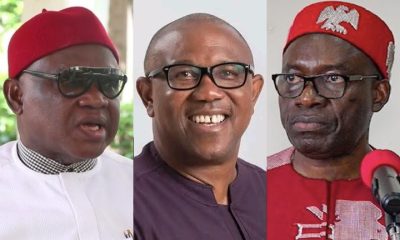
 Featured6 days ago
Featured6 days agoYour Attacks on Peter Obi Are Petty, Stop It! Chekwas Rebukes Soludo
-

 News5 days ago
News5 days agoTension in Anambra community as senior police officer shoots kinsman dead
Colleagues, others try cover-up; victim's family fights back
-

 News6 days ago
News6 days agoNigerian visa applicants must provide 5-yr social media history — US embassy
-

 News4 days ago
News4 days agoTerrorist Organisation: APC, PDP Members in US, UK, France Risk Deportation
-

 Celebrity/Entertainment6 days ago
Celebrity/Entertainment6 days agoWhy single mothers can’t raise boys into proper men — Jim Iyke
-

 News3 days ago
News3 days agoVandal electrocuted while vandalizing Aba power infrastructure
-

 News3 days ago
News3 days ago15% of Nigerian girls aged 15–19 are mothers or pregnant — FG
-

 News2 days ago
News2 days agoPeter Obi’s Son Breaks Silence Over His Viral Photos Nigerians Are Talking About
-

 News2 days ago
News2 days agoI’m not a gay — Obi’s son Oseloka speaks on viral picture



